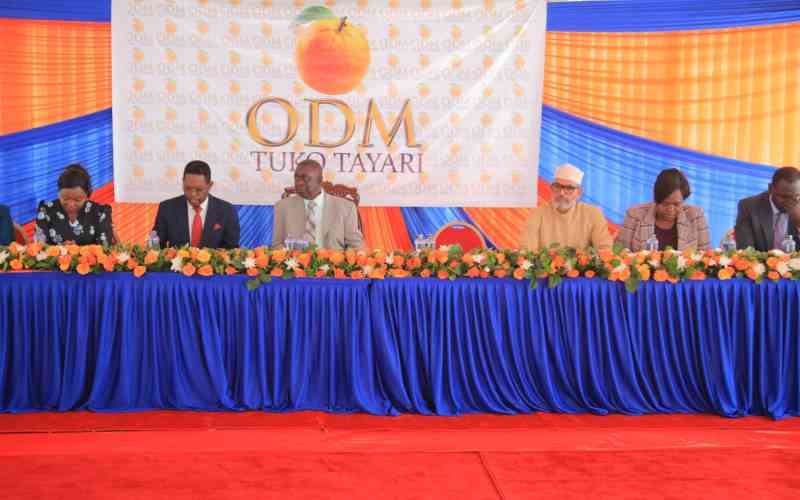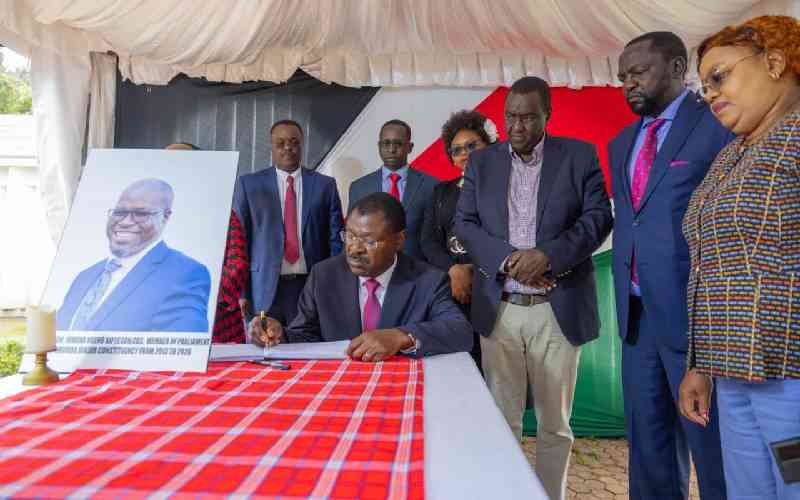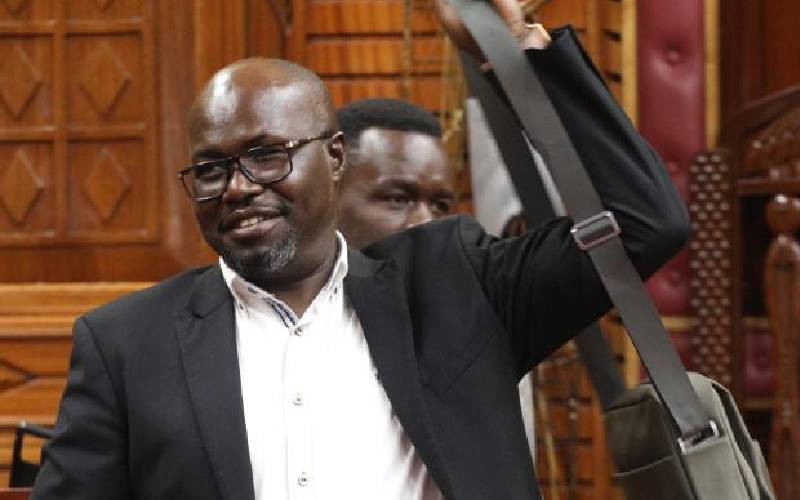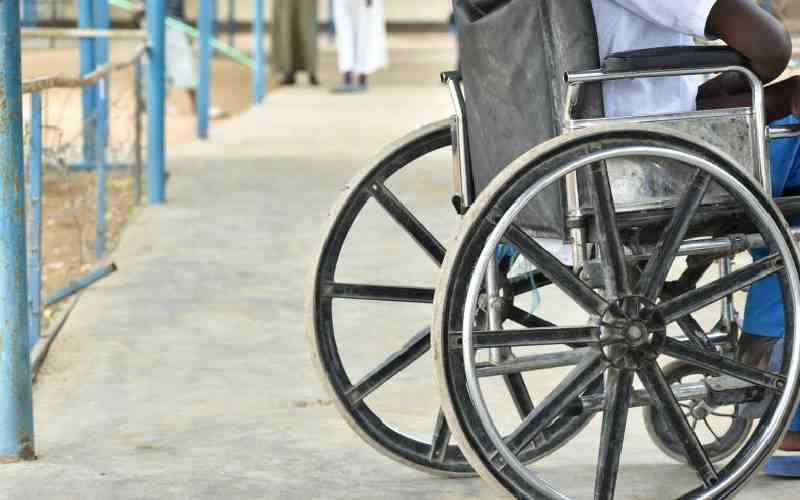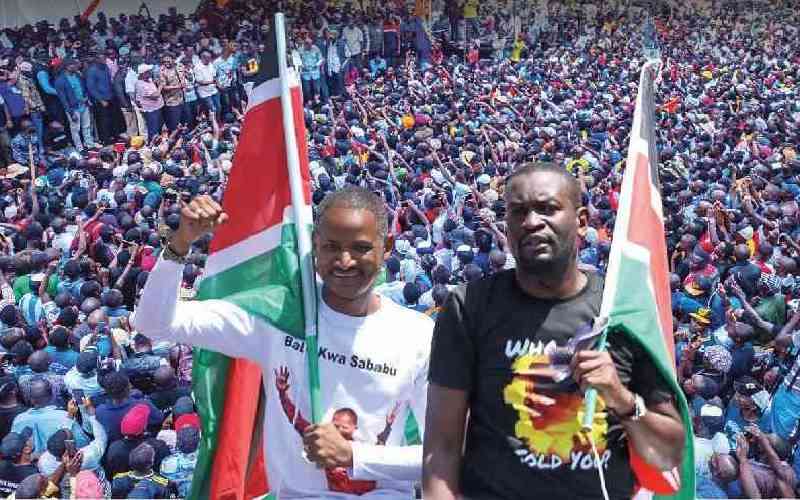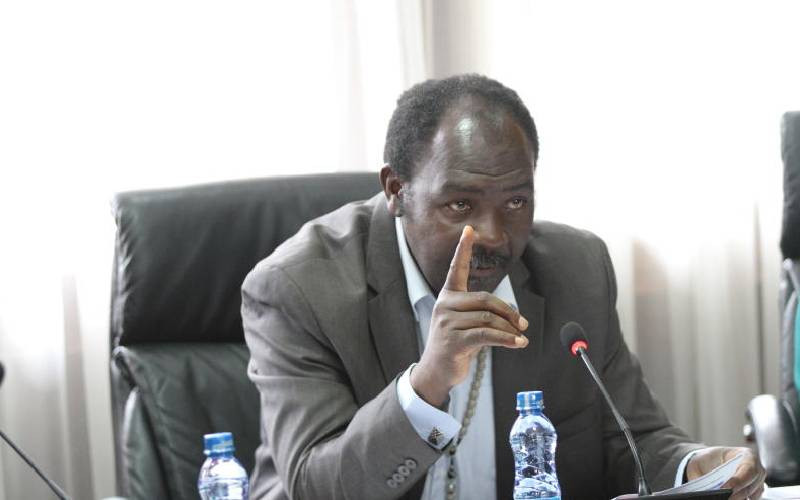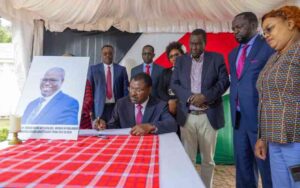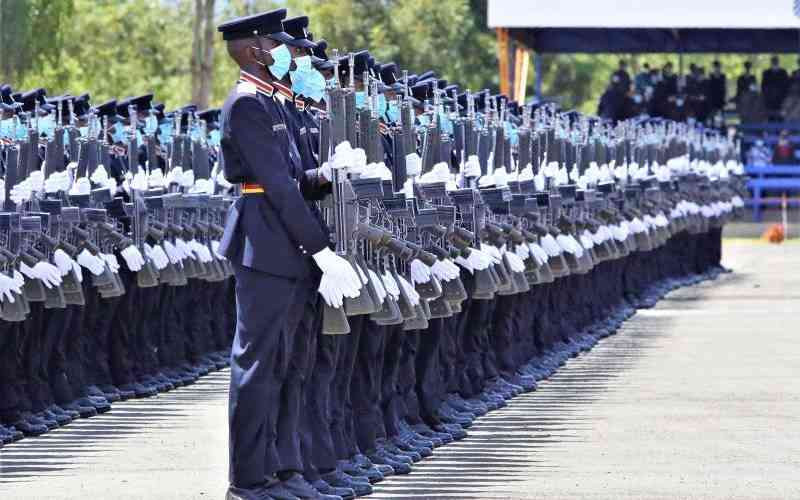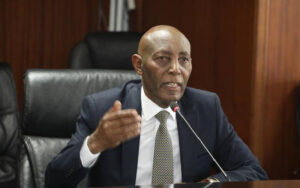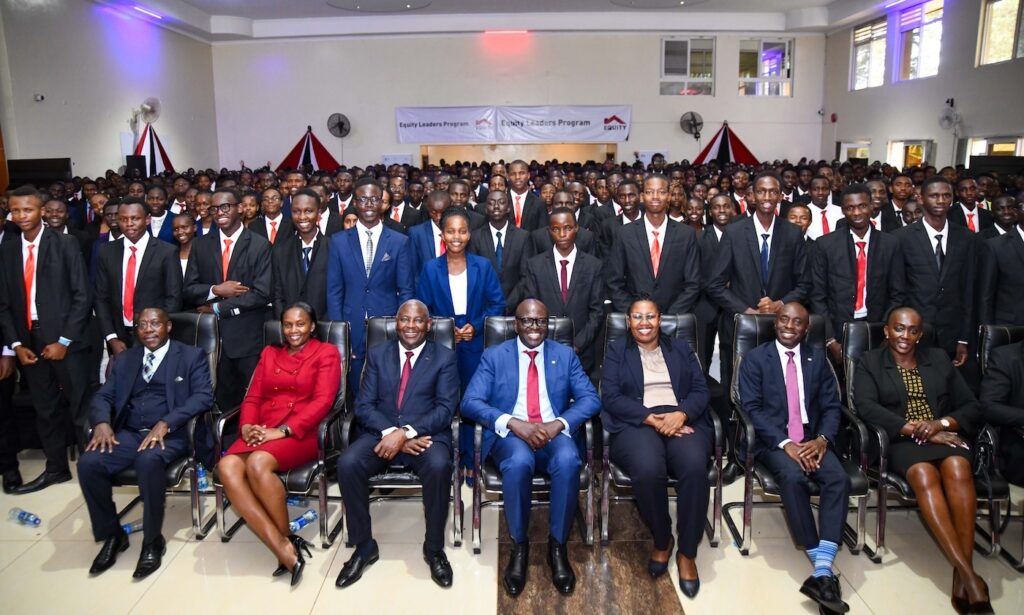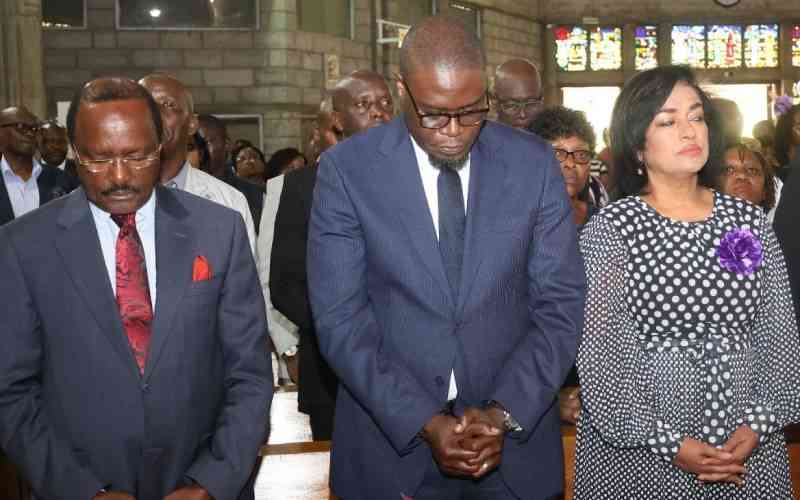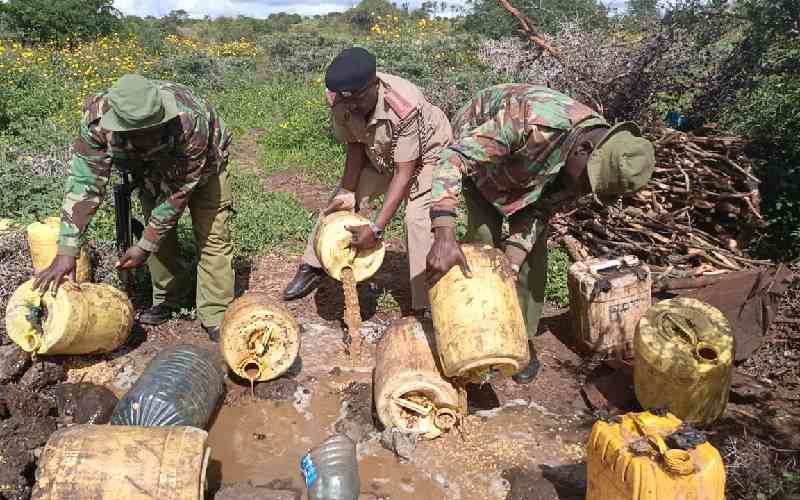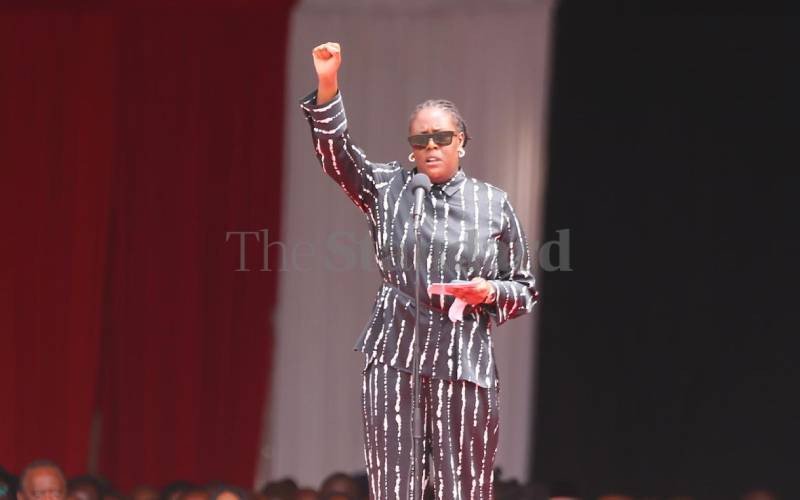Residents of Kakamega County now want parliament to fast-track the enactment of the National Government Coordination (Amendment) Bill, 2023, in honour of the late Malava MP Malulu Injendi.
The MP who died on Monday at Aga Khan Hospital in Nairobi on Monday was the sponsor of the bill. The residents called on the MPs to fast-track the approval if the bill in honour of the MP.
The bill aims to recognise village elders and have them in the national government payroll as administrative officers in charge of service delivery units.
However, village elders led by Joram Mukalo, of Shitirira village, where Injendi hails from, said it will be a great honour for the late legislator for the bill to sail through the House and assented to.
“Our MP was a great leader who valued the welfare of the people, and now he is no more. He sponsored a bill that is still in the national assembly, and we want to tell our president that it will be an honourable thing if the bill is fast-tracked and signed into law,” said Mukalo.
Mukalo said the lawmaker saw the great work the village elders were doing in enhancing security and coordination at the grassroots, and therefore to assent the bill into law will appease the spirit of the late legislator.
“The father of our MP was a village elder, and our lawmaker knew the great work we are doing. To appease his spirit, we need to have the bill into law so that it can cater to our interests and welfare,” said Mukalo.
Ruben Otiende, a Shikhambi village elder, urged the members of the National Assembly to fast-track the passage of the bill to complete the work the late Injendi started.
“We were happy when the MP started the bill to give village elders dignity through remuneration and for our legislators to pass the bill so that the President can sign it into law. This will be the only way to honour our fallen hero,” said Otiende.
The proposed units are poised to be created in line with the law, which creates service delivery coordination units for handling national government functions.
The bill proposes the creation of village councils headed by a village administrator.
“The national government shall, in respect of every village unit, establish village councils headed by a village administrator and appoint such village elders to the village council as may be necessary for purposes of coordination of national government functions,” the bill reads.
Earlier on, Injendi said the offices should be created in cognisance of the requirements set out in the establishment of village councils and appointment of village elders as set out in the County Government Act, 2012.
Section 53 of the counties law puts in place in each village unit a village council headed by a village administrator.
Stay informed. Subscribe to our newsletter
The village administrator is designated as the chairperson of the village council, which has “not less than three and not more than five village elders.”
It is required that the elders be competitively appointed by the village administrator with the approval of the county assembly, “taking into account gender balance.”
Injendi, in the proposed law, seeks to provide that the national government shall ensure the establishment of the councils is in line with the counties law.
If the MPs approve the proposal, the Public Service Commission would appoint a village administrator in respect of each village unit.
The village administrator would be the lowest cadre of the NGAO offices, to add to county commissioners for every county, deputy county commissioner for each subcounty, assistant county commissioner for every ward, chiefs, and assistant.
“The village elders shall be paid such allowances as may be determined by the Public Service Commission,” the proposed law says.
“In accordance with Section 14 (3) of the National Government Coordination Act, national government service delivery coordination units should mirror the decentralised units established under Section 48 of the County Governments Act, 2012,” the MP said in the bill’s memorandum.
Ruto led the nation in mourning the MP, whom he termed a selfless leader.
Until his passing, Injendi was the Vice Chairman of the Departmental Committee on Education and Research, where he played a key role in shaping policies in the education sector.
He was also a strong advocate for reforms in the sugar industry, championing policies aimed at revitalising the sector for the benefit of farmers and the economy.
Malulu made his first entry into the Parliament in 2013 under the Maendeleo Democratic Party (MDP), succeeding former Minister for Housing in the late Mwai Kibaki government, who unsuccessfully vied for the Kakamega gubernatorial seat in 2013 against former Governor Wycliffe Oparanya, now the Cabinet Secretary for Cooperatives.
In 2017, Malulu defended his seat under the Jubilee Party, and in the 2022 general elections, he successfully retained the seat, trouncing Seth Panyako, Secretary General of the Kenya National Union of Nurses (KNUN).
According to parliament records, in 1981, the legislator sat for his Class 7 CPE at Lugusi Primary School, proceeding for his F5 O-levels at St. Ignatius Mukumu Boys in 1985 and 1987; he did his F6 A-levels at St. Peter’s Boys High School Mumias.
In 1991, the legislator attained a Bachelor of Arts (Economics and Sociology) from Egerton University. Injendi attained a Master of Arts (Sociology) at the University of Nairobi in 1996.



